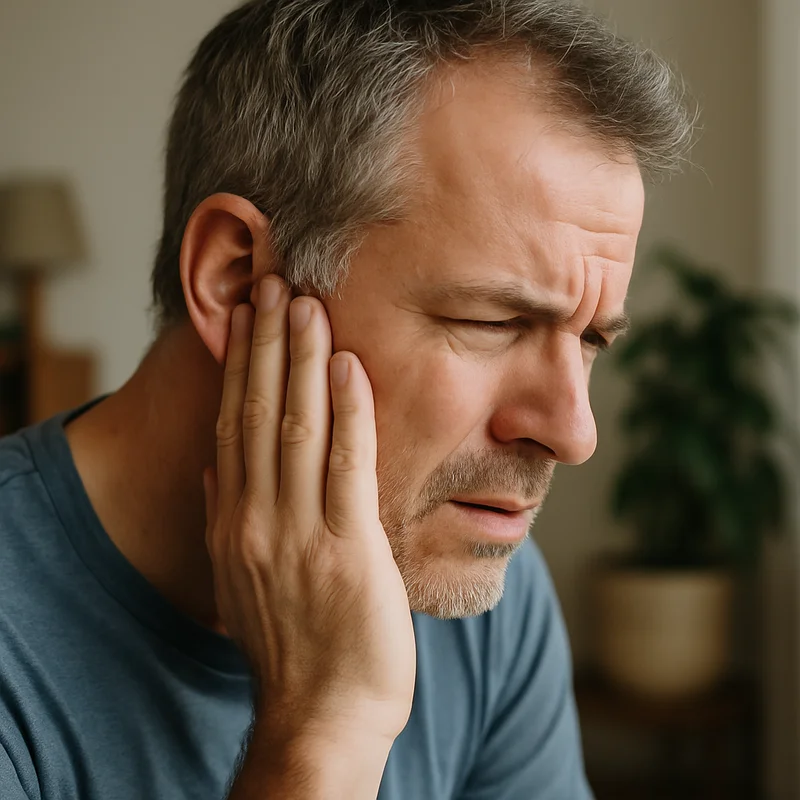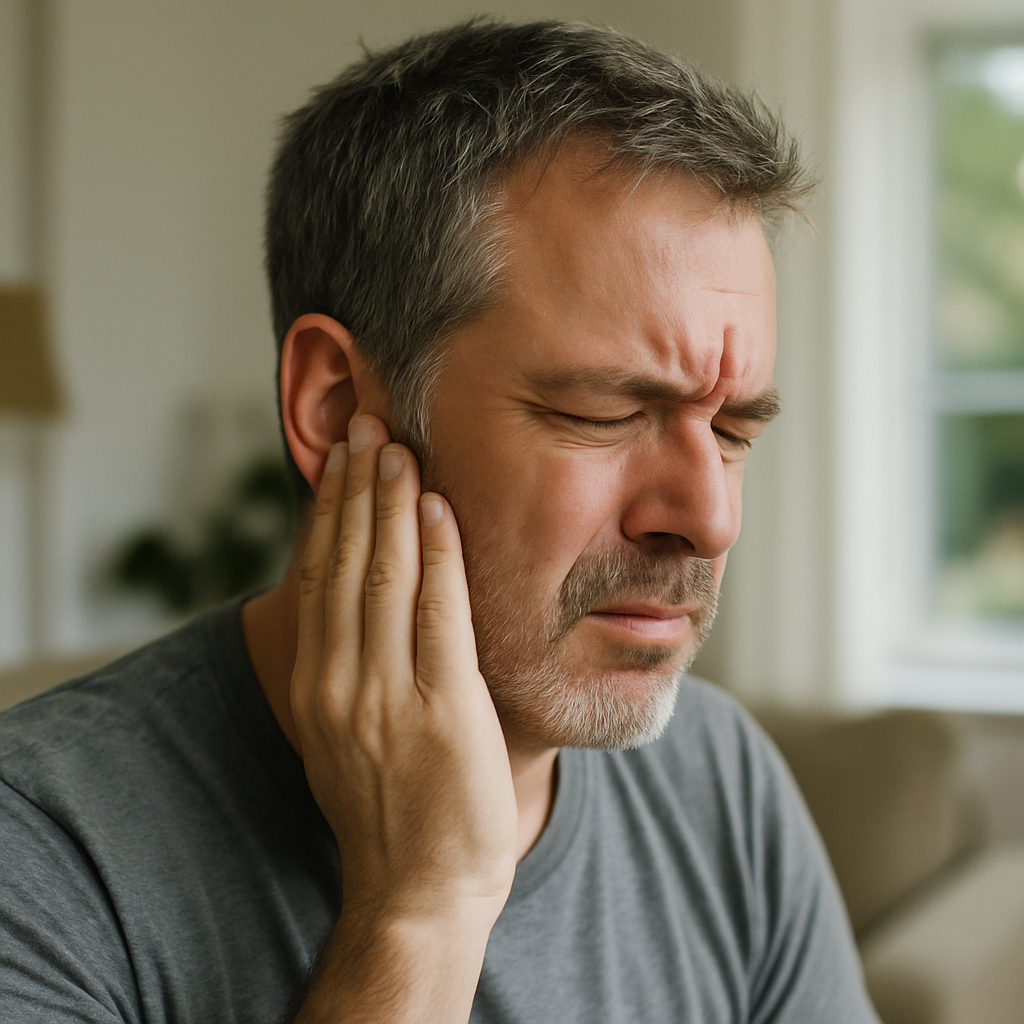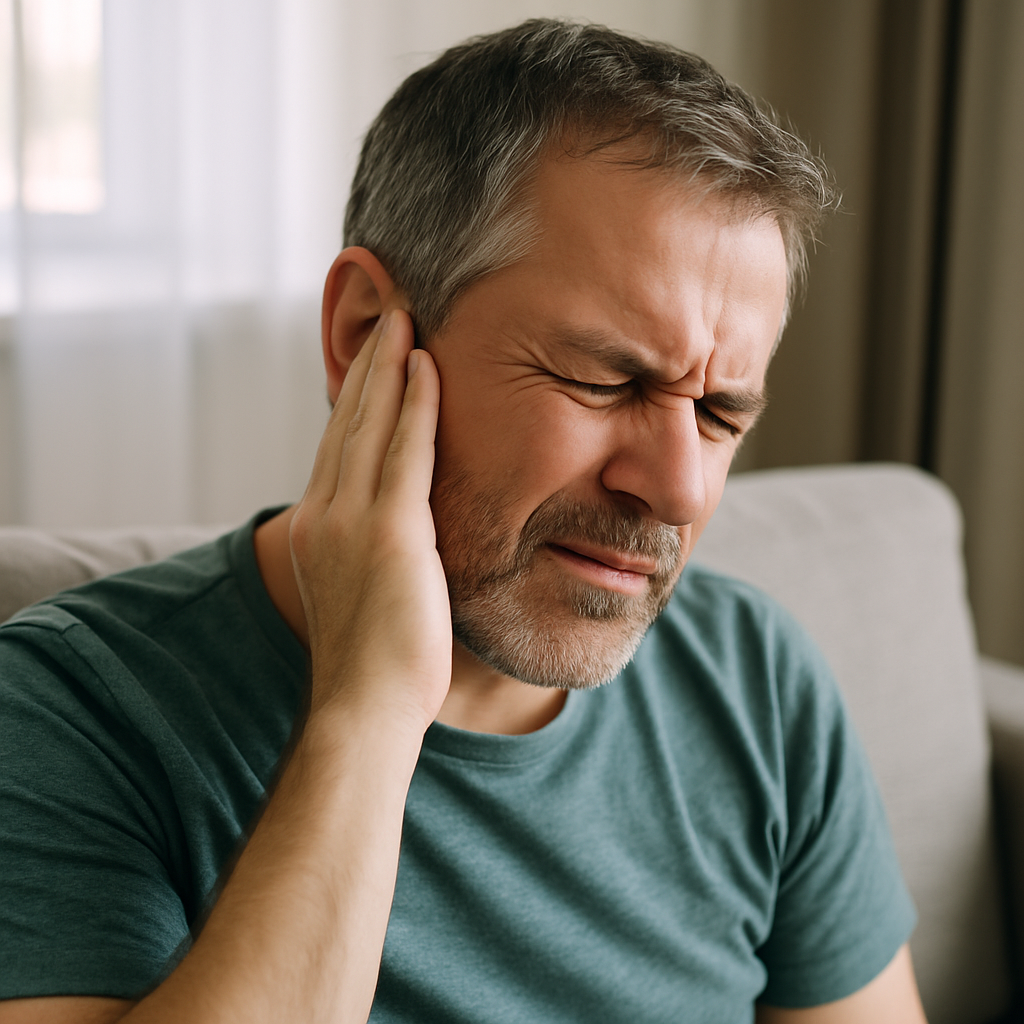Ask Ayurvedic doctor a question and get a consultation online on the problem of your concern in a free or paid mode. More than 2,000 experienced doctors work and wait for your questions on our site and help users to solve their health problems every day.
What Is Tinnitus? Meaning, Causes & Natural Remedies

You ever get that weird ringing in your ears that no one else seems to hear? It’s not just you—and no, you’re not imagining it. That buzzing, hissing, or high-pitched whining noise that shows up uninvited and refuses to leave? That’s tinnitus. So, what is tinnitus, really? It's more common than you might think—millions of people live with it every day. And yet, it’s one of those conditions that feels oddly invisible. You can’t point to it, and you sure can’t show it in a photo. But it’s there, in the silence, in the quiet moments. It gets louder. Annoying? Absolutely. Life-ruining? Sometimes, yes.
Let’s talk about what it is, what causes it, and yeah, some of the actual things you can do to deal with it—especially if you lean towards natural healing like Ayurveda. Whether it’s a passing nuisance or something more chronic, knowing what you’re dealing with makes all the difference. Let’s dig in.

What Is Tinnitus?
Definition and Types
Okay, plain definition time: Tinnitus is the perception of sound when there’s no external sound. The classic one is that high-pitched ring, but it can also show up as buzzing, humming, clicking, even roaring. The key thing is—it’s all in your head (literally), but not in the “you’re imagining it” kind of way.
There are two main types. Subjective tinnitus, which is the most common, and only you can hear it. Then there’s objective tinnitus, which is super rare and can actually be heard by a doctor using a stethoscope. Wild, right?
How It Feels and Sounds
People describe tinnitus differently. For me, it’s like someone turned on an old tube TV in the next room and left it there humming. Some hear chirping. Some say it's a high-pitched alarm. Others feel it more as a pressure—like their ears are full. It can be soft background noise, or it can be so loud you can’t sleep. That unpredictability? That’s part of what makes it so frustrating.

Don't wait or self medicate. Start chat with Doctor NOW
Causes and Risk Factors
Hearing Loss
Most of the time, tinnitus causes trace back to one thing: hearing loss. That doesn’t mean you’re going deaf—it could just be the result of natural aging or long-term exposure to noise. Your brain, starved of normal sound input, decides to fill in the blanks. And not in a helpful way.
Loud Noises, Infections, Medications
Been to a concert recently? Or worked construction without earplugs? Loud noises are a biggie when it comes to ringing in ears. So are ear infections. Even some medications—especially antibiotics and NSAIDs—can trigger it. There’s also stress (surprise!), TMJ, and even something as random as too much earwax. It’s kind of a grab bag of causes.
Natural Ways to Relieve Tinnitus
Diet and Lifestyle Tips
This part always gets mixed reactions. “Can food really help with tinnitus treatment?” Short answer: maybe. Long answer: your body’s a whole system. What you eat affects your inflammation levels, your circulation, your stress. Try reducing caffeine, salt, and alcohol. Add more magnesium-rich foods like spinach, bananas, and avocado.
And if you’re a smoker? Sorry, but smoking tightens the blood vessels that feed your ears. Not helping the cause.
Natural Ways to Relieve Tinnitus
Sound Therapy and Stress Reduction
One thing people don’t realize is how much your mind plays into tinnitus symptoms. Ever notice it feels louder when you're stressed or lying in bed trying not to think about it? Yeah, stress and silence are like megaphones for ear ringing.
That’s where sound therapy comes in. White noise machines, nature sounds, even a fan or soft instrumental music can help mask the ringing. Not cure it, sure, but make it less intrusive. Some people swear by “notched music therapy,” where frequencies close to your tinnitus pitch are filtered out of your favorite songs. It kind of re-trains your brain to pay less attention to the sound.
And then there’s meditation, deep breathing, yoga. Not just for spiritual folks—these things actually help calm the nervous system. Which helps with everything, including tinnitus. If your stress goes down, chances are the ringing in ears gets a little quieter, too.

Ayurvedic Approach to Tinnitus
Doshas and Hearing Imbalance
Now, let’s shift gears to something older. Much older. Ayurveda for tinnitus is a whole different way of thinking about it. Instead of focusing only on the ear, Ayurveda looks at the whole body—specifically, the doshas. You’ve probably heard of them: Vata, Pitta, Kapha. In this case, tinnitus is often linked to a Vata imbalance—that’s the dosha associated with air and space. Light, dry, and all over the place (just like tinnitus).
When Vata is aggravated—think too much travel, erratic sleep, poor diet—it can manifest as instability in the nervous system. In Ayurvedic terms, that’s where the noise starts. The ringing isn’t just in your ears, it’s in your energetic imbalance. Sounds abstract, but for many people it’s more intuitive than Western medicine.
Herbal Oils and Treatments
So what does Ayurveda actually do about it?
A lot of treatments focus on grounding and calming Vata. Think warm oil massages (Abhyanga), especially around the head and ears. There’s a treatment called Karna Purana where warm medicated oil is gently poured into the ears. Feels amazing, by the way.
Herbs? Definitely. Some commonly used ones include Ashwagandha, Brahmi, and Tagara—all known for calming the nervous system. There are also herbal ghee blends and teas aimed at reducing internal dryness and inflammation.
It’s not a magic switch. But if you’re dealing with chronic tinnitus, and nothing else is really working, exploring Ayurveda might actually feel like the first time someone’s treating you, not just your symptoms.
When to See a Doctor
Chronic vs Acute Tinnitus
So, here’s the question I always get: “Should I worry about this?” The short answer: it depends.
If the ringing came on suddenly, is super loud, or you’ve got it in just one ear (especially if it’s accompanied by dizziness or hearing loss), go see someone. Now. Same if it doesn’t go away after a week or two. That could signal something more serious—nerve damage, an infection, or even a tumor. Rare, yes, but possible.
On the other hand, if it’s been going on for months or years and it’s just part of your background noise now? That’s chronic tinnitus. Still worth getting evaluated, but you might be focusing more on tinnitus remedies and lifestyle changes than a medical “cure.”
Testing and Clinical Care
A proper diagnosis might include hearing tests, balance assessments, imaging (like MRIs), and a full review of your medications. Some ENTs might suggest hearing aids—even if your hearing loss is mild—because amplifying real-world sounds can actually quiet the phantom ones.
There are also cognitive behavioral therapies (CBT) aimed at helping you change your relationship with tinnitus. Because, let’s face it, sometimes the sound doesn’t change—but how you react to it can.
Conclusion
So, let’s wrap this up—what is tinnitus, really? It’s more than just a weird sound in your ears. It’s a symptom, a messenger, maybe even a warning bell (pun intended) from your body or mind. And yeah, it’s frustrating. Sometimes terrifying. Sometimes just plain exhausting.
But here’s the silver lining: there are ways to live with it. Not just survive it—actually live. Whether you're drawn to natural tinnitus remedies, intrigued by Ayurveda for tinnitus, or you’re just trying to figure out why your ears won’t shut up… you’ve got options. Diet, stress management, herbs, sound therapy—this stuff isn’t just fluff. It’s functional, and for a lot of people, it's a lifeline.
What worked for me? A mix. A little Ayurveda, a little mindfulness, and honestly? Just giving myself permission to not freak out about the noise. It’s still there. But now, it’s more like a background hum than a blaring siren.
You don’t have to “fix” it all overnight. You just need a place to start.
FAQs
What causes ringing in the ears?
Common tinnitus causes include hearing loss (especially age-related), prolonged exposure to loud noises, ear infections, excessive earwax, stress, and even certain medications. It can also be triggered by physical trauma, neurological disorders, or changes in blood pressure.
Can tinnitus go away on its own?
Sometimes, yes. If it’s acute—say, after a loud concert—it might resolve within a few days. But for many people, especially those with chronic tinnitus, it lingers. That doesn’t mean you're stuck—many find natural tinnitus relief through lifestyle changes and holistic care.
How does Ayurveda treat tinnitus?
Ayurveda views tinnitus as a Vata imbalance. Treatments include grounding practices like warm oil massages (Abhyanga), herbal oils in the ears (Karna Purana), and calming herbs like Ashwagandha and Brahmi. The focus is on restoring balance to the body and nervous system.
What foods worsen tinnitus?
Salt, caffeine, alcohol, processed sugar, and foods high in MSG are often culprits. They increase inflammation, blood pressure, or stress responses—none of which help your ears. A whole-foods, anti-inflammatory diet is a safe bet.

